Is there any image more quintessentially “homestead” than a coop surrounded by clucking chickens? Being able to walk to the coop, basket in hand, and return with tomorrow’s breakfast, is a true homesteader’s delight.
But what happens when you go to the coop and find the nesting boxes unexpectedly empty for days on end? Your mind may race … is it rat snakes? Is a neighbor stealing eggs on the sly? Did the dog somehow get into the coop?
Or … what if it is the hens themselves?
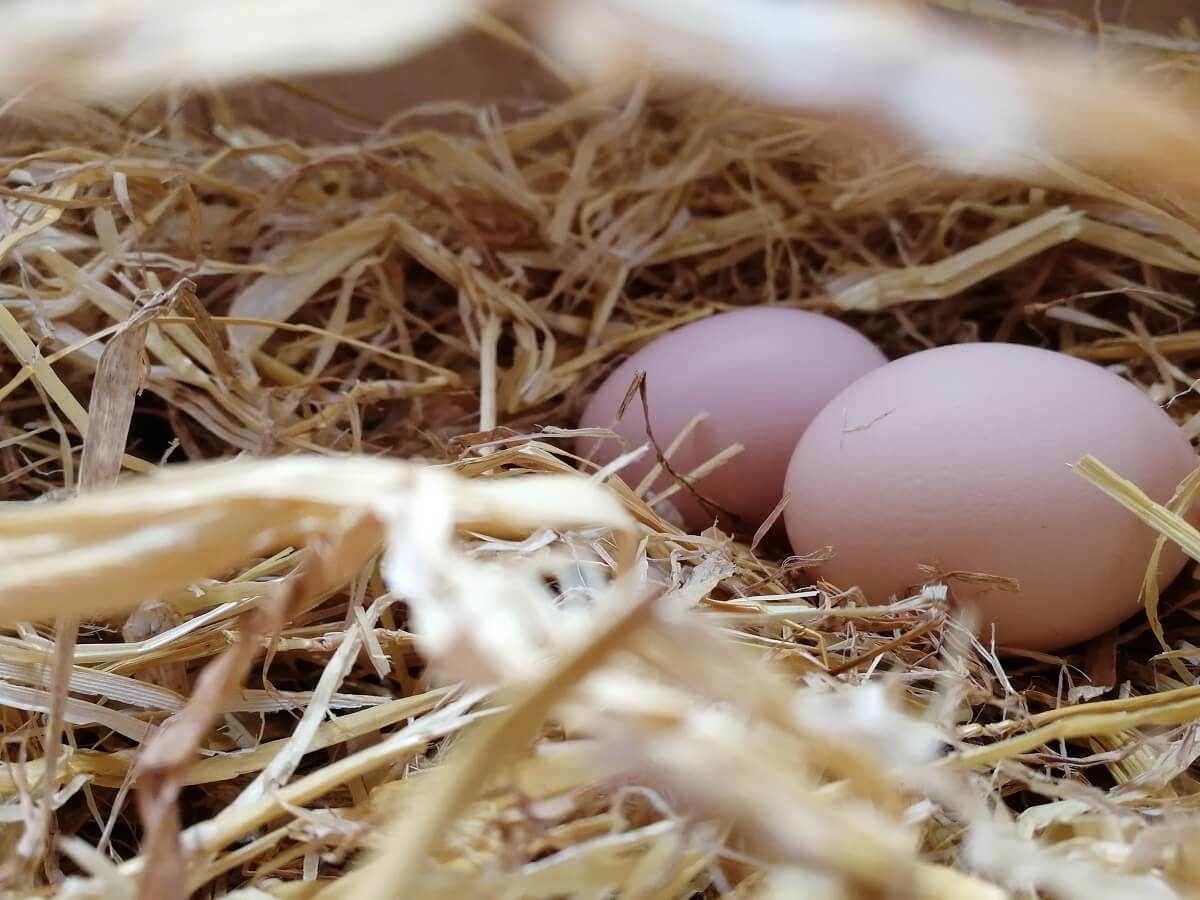
Egg-eating chickens is a relatively uncommon problem, but for those who face it, it’s incredibly frustrating. The birds who were your allies and partners suddenly become thieves, stealing your food and profits right out from under your nose. And once egg-eating starts, it’s a race against time to figure out the reasons why it started and which bird is the culprit. The longer the unnatural behavior goes on, the harder it is to correct.
So let’s talk about what to do when your hens haven’t stopped laying, but the eggs are nowhere to be found.
Step One: An Unwanted Discovery

It’s counterintuitive to suspect that chickens are eating their own eggs. You may merely wonder why there are so few (or no) eggs in the nesting boxes recently. But a closer inspection may reveal telltale signs of egg-eating. One of those signs is a wet spot left in the nesting boxes; remnants of egg white that soaked in before it could be consumed. Yellow egg yolk stains are also a sure clue. Chickens are quite thorough, when it comes to eating, so it’s unlikely that you’ll ever find a half-eaten egg.
Step Two: Find the Culprit, Fast!
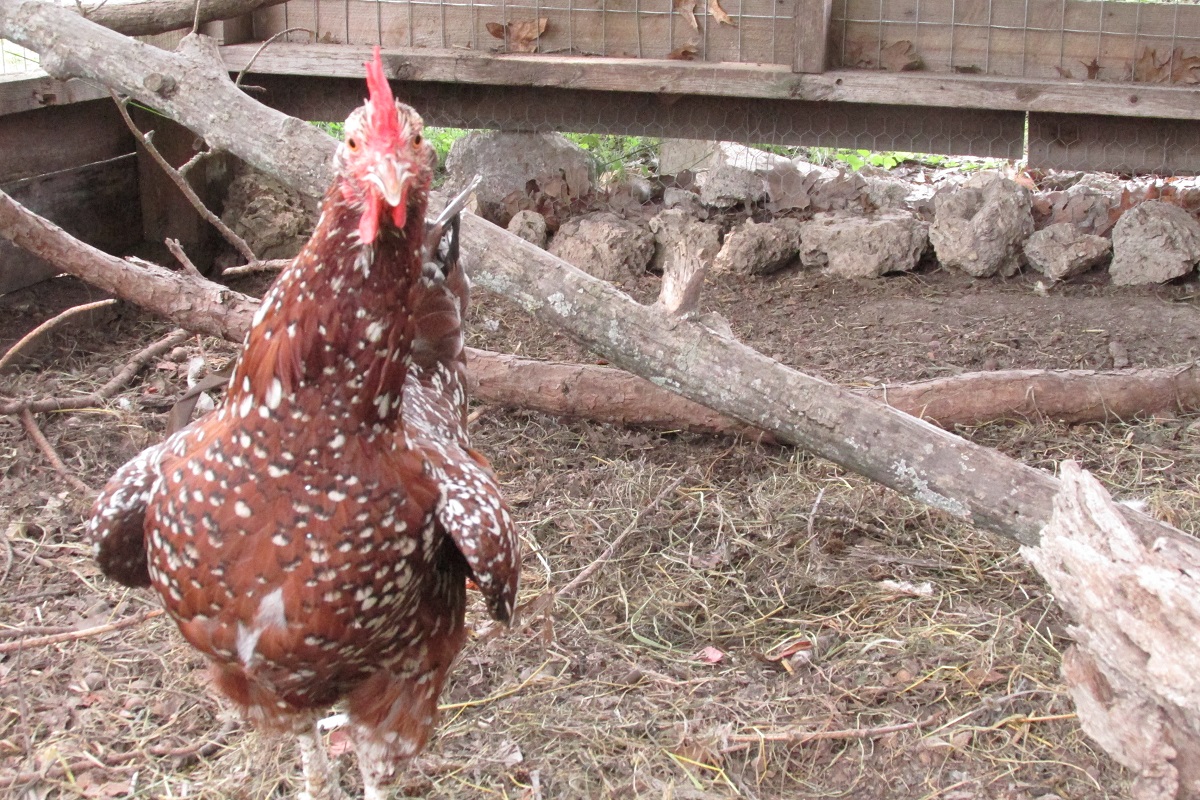
If a hen is eating eggs, it won’t stay a small problem for long. Chickens are social birds, and if the other hens observe one of their friends happily feasting, they’ll investigate and try to nab some of the treat for themselves. This means that once a single hen figures out that eggs are tasty, it’s only a matter of time before all the hens come to the same conclusion. Worst of all, the longer the problem goes unsolved, the more ingrained the idea that eggs = chicken food will become in their little bird brains.
There are several ways to catch your egg-eaters. First off, be vigilant around the coop. Watch for when hens go to lay eggs, and see if you can catch your thief (or thieves) in the act. Egg-eaters often linger around the nesting boxes, constantly scoping them out for snacks. Sometimes, they’ll even sit and stare at laying hens, waiting for the instant they get up from their new egg so they can swoop in and take it.
There’s no easier way to catch a problem than when she’s still in the act of pecking apart what should have been your omelet. Of course, we can’t spend the whole day babysitting birds, so you can also try to detect bits of eggshells or egg yolk clinging to the bad biddies’ beaks or head feathers.
Another way is to try to isolate the potential perpetrator. If you have a suspicion of who it may be, but aren’t sure, put her in an area totally separate from the main coop for a week. If the eggs suddenly reappear you may have found your bird. If there are multiple problem hens, this may not be effective.
Another, rather drastic method of catching an egg-eater was recommended to me by an older farmer. Blow out an egg by poking two pinholes on either end, and blowing through one until the egg is empty. Fill the egg with a bright paint, then put it back into the coop and leave it to be eaten. The problem bird will be caught with paint all over her beak as proof. Of course, now you have a chicken with a crop full of paint, which is not very good for her. That takes us to the next step.
Step Three: Judgment
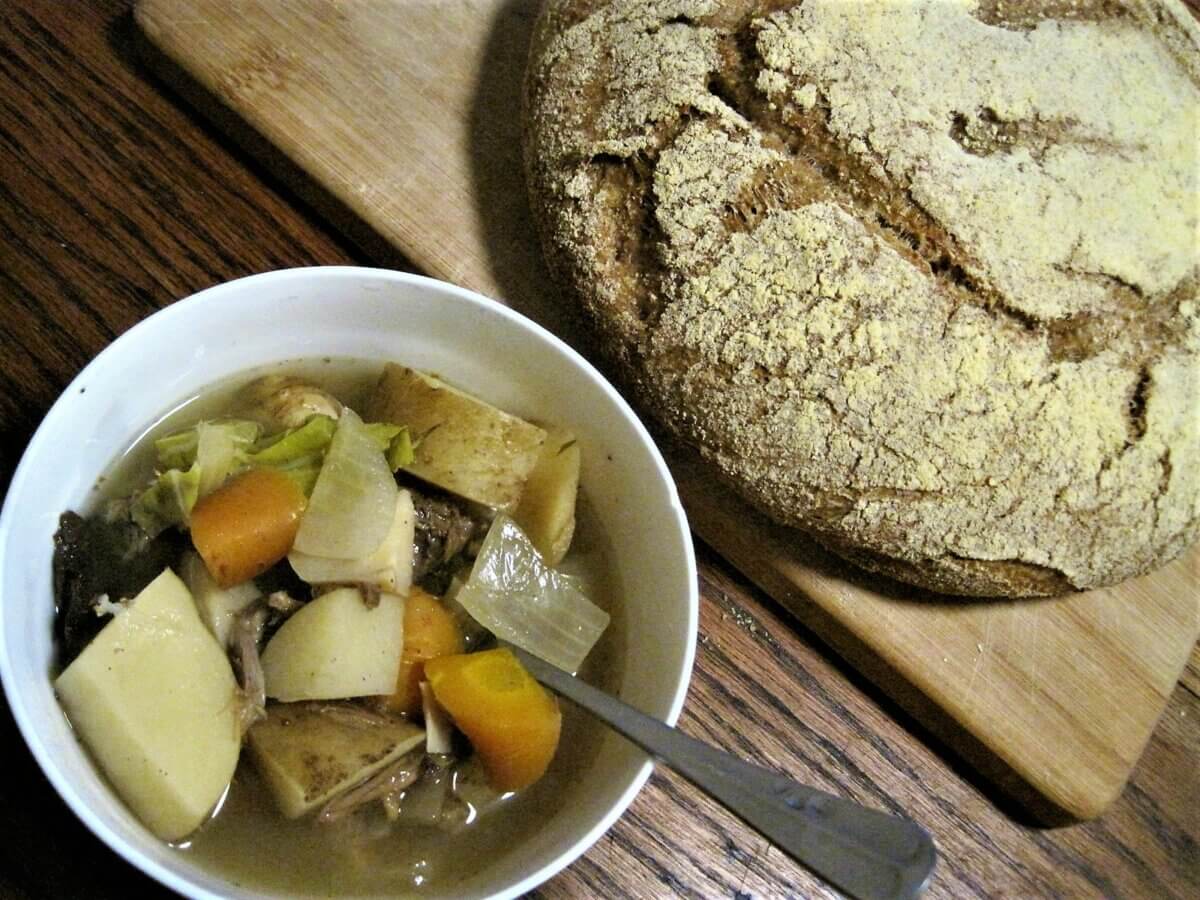
How you decide to deal with your egg-slurping problem is up to you. Traditional wisdom knows this behavior is hard to break, and culls such chickens for stew. At least you can get a meal back in the form of some chicken meat, and the bird doesn’t go to waste. Furthermore, you can be sure that her threat to your eggs (and the threat of other chickens picking it up) is 100% eliminated.
A lot of folks online act like culling is unnecessarily cruel, but it really boils down to your chicken philosophy. If you’re keeping a coop of pets, you’ll likely be willing to go through the hassle of moving an egg-eater out of the coop for the morning so she stops stealing eggs. But if they’re livestock who are supposed to be contributing to your livelihood, unnatural, destructive behaviors will only hurt you in the long run. Do what’s best for your family and the long-term viability of the flock, and if culling is your choice, make it with confidence and enjoy your dinner.
That said, instead of culling, some folks try to “re-educate” their birds by letting them try to eat a blown-out egg that has, instead, been filled with mustard. Chickens are supposed to hate the taste of mustard, which should make them stop thinking eggs are all that tasty. Some chicken keepers have reported that their birds had no problem downing mustard eggs, which made useless the effort and didn’t do anything to change the hens’ destructive minds.
Whether you decide to cull or try to cure your hens, you’ll be able to breathe a sigh of relief when the eggs start showing up again.
Step Four: Figure Out the Reasons Why
This situation didn’t come out of thin air, and if ever you have to deal with the stress and annoyance of trying to stop an egg-eater, you’ll likely want to figure out why in the world it happened in the first place. These are some common causes for egg-eating.
1. The chickens are lacking essential nutrients.
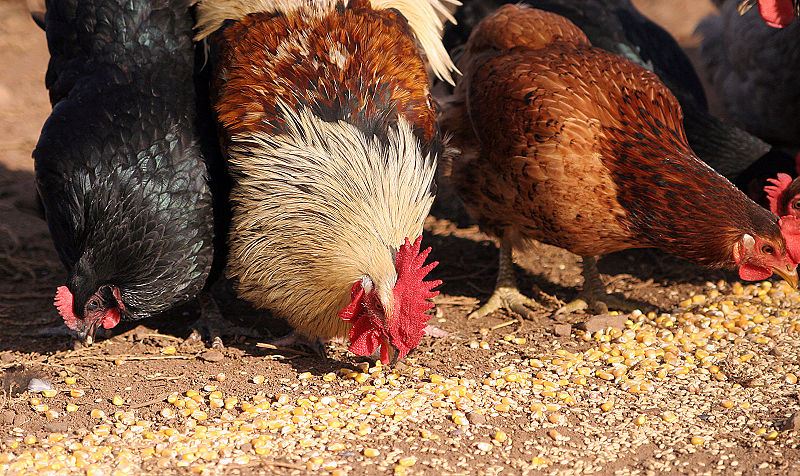
If chickens aren’t getting a balanced diet — as can happen to birds kept in confinement in a coop, rather than free-ranging — there’s a chance that diet is lacking. If they are desperate for certain nutrients, they’ll do their best to find them however they can, whether it be eating their own feathers, or as pertains to this article, their eggs.
2. Eggs aren’t being collected in a timely manner.
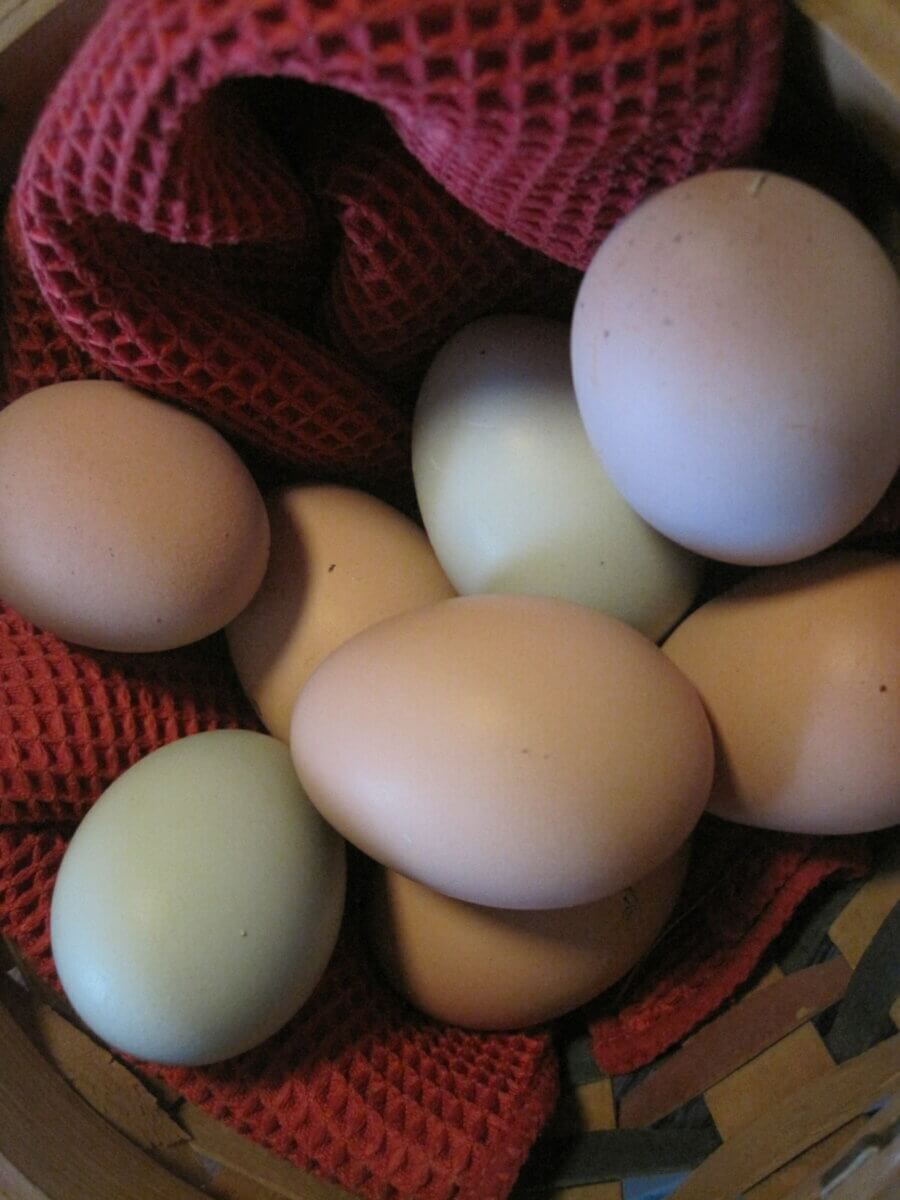
The best time to collect eggs is as soon as they are laid. If they start to pile up in a nesting box, the chance of a hen stepping on one, jostling an egg out of the box and dropping it on the floor, or giving it a curious peck, start to increase with the hour.
3. Eggs are thin-shelled, resulting in breakages.
If your birds aren’t provided with enough calcium supplements, either in the form of a well-balanced natural diet with access to lots of greens and bugs or some sort of free-choice diet amendment provided in their coop (crushed oyster shells often fill this role), their bodies are going to get taxed for minerals and will end up producing eggs with fragile shells. Since many hens stand at the final stage of laying and allow eggs to drop down, these fragile shells may break on impact, creating a tempting spread for a curious potential egg-eater.
Finally, if you’re dealing with an older hen of an egg-laying breed (as in, over 3 years old) it’s possible that her body is starting to run out. Many modern egg-laying breeds and hybrids have been engineered (for lack of a better word) to give absolutely everything they’ve got to egg production, resulting in birds that can “burn out” as it were, after their first two years or so. Many hybrid chickens only have a 5-year lifespan, and often develop reproductive track disorders the older they get. This is the issue I’m dealing with in my own coop, as some of my hens are over 5 years old and are starting to lay weak-shelled eggs. One got crushed, a hen found it before I did, and well, you can figure out how the rest went.
4. There aren’t enough nesting spots.
If you have lots of hens and just a few nesting boxes for them to deposit their daily eggs, you may end up with birds jostling for their favorite boxes like a weird game of musical chairs, but with egg-crushing results. Even the most well-intentioned hen might accidentally stomp on a previously-laid egg while competing with another hen for a spot. And once a gooey egg yolk is exposed, it’s only a matter of time before someone figures out that it’s tasty.
5. Chickens lack enough space or stimulation.
If you have lots of chickens crammed into a small space, unnatural behaviors can emerge. Chickens naturally want to scratch and peck at the ground, move around, flutter from perch to perch, and dust themselves. Lacking the opportunity or space to do what they’re programmed to do, they may start to peck at eggs and each other in a desperate attempt for stimulation.
Step Five: Prevention
Whether you’ve Sherlock Holmesteaded your way into culling an egg-thief, or want to make sure you never have to deal with this situation in the first place, here’s some general good sense steps that can prevent egg-eating from rearing its ugly head in your coop kingdom.
1. Provide adequate nutrition for your birds.
Chicken health starts with solid nutrition. Healthy birds aren’t stressed, aren’t scrounging for missing minerals or nutrients, and should be laying strong-shelled eggs. If you’re not confident on where to start with feeding chickens a well-rounded diet, feel free to check out our video on the subject here.
2. Provide ample cushioning in nesting boxes.
Hens often scratch bedding and straw out of nesting boxes while they’re trying to get comfortable enough to lay. If you use natural bedding materials, check the nesting boxes daily to ensure there’s a soft cushion for eggs to land on. I’ve had good success with wood shavings, as they’re harder to scratch out of the boxes than straw.
3. Collect eggs often.
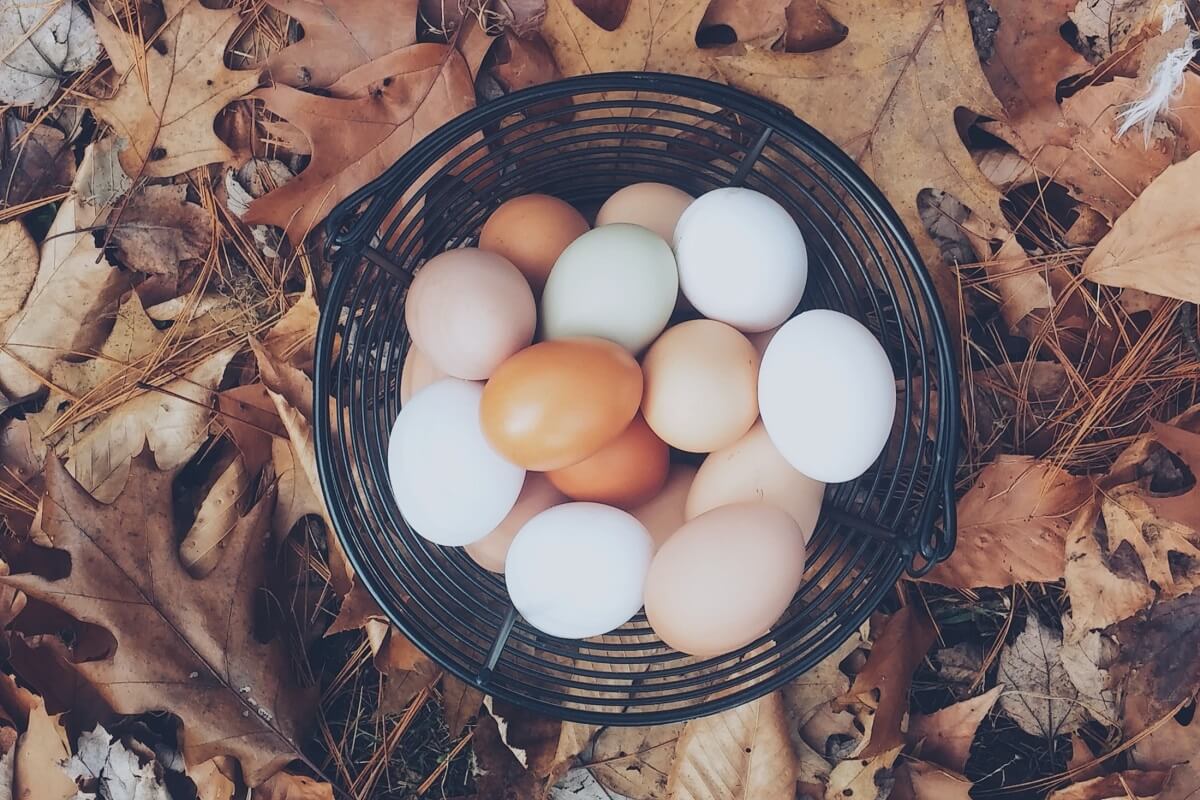
This is a simple, yet a very good habit to keep while moving about your daily chores. Listen for hens’ “egg song” to indicate when they’ve produced a new egg, and use it as your cue to grab the basket.
4. Smash egg shells thoroughly before feeding them back to the flock.
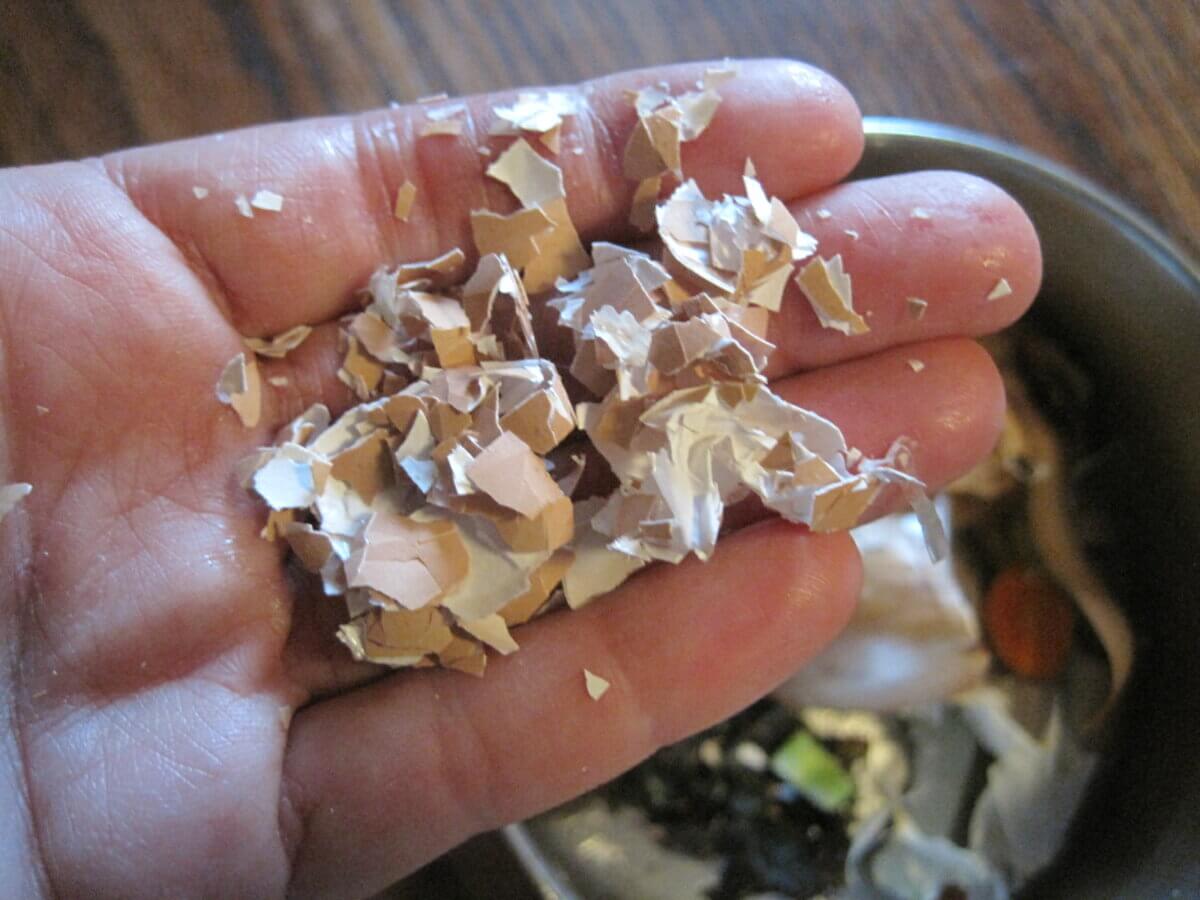
Feeding egg shells back to the hens is a great way to supplement their calcium intake, but it can backfire if you’re tossing egg halves into the coop. They can look a lot like a whole egg, and can start training your birds to peck at egg-shapes, rather than eating their food. Take the time to fully crush egg shells to unrecognizable bits before they go back to the flock.
5. Keep nesting areas dark and undisturbed.
Chickens prefer a private, shadowy place to lay their eggs — it makes them feel more secure. Bright light or constant interruptions while they’re on the nest can make them twitchy and flighty, resulting in hasty nest exits that can result in smashed or dropped eggs.
6. Try using roll-away or roll-out nesting boxes.
Though this addresses symptoms rather than the cause, using a roll-away nesting box may help protect your egg collections while you figure out what environmental causes may be troubling your chickens’ judgment.
7. Make sure you have adequate space for coop-bound birds
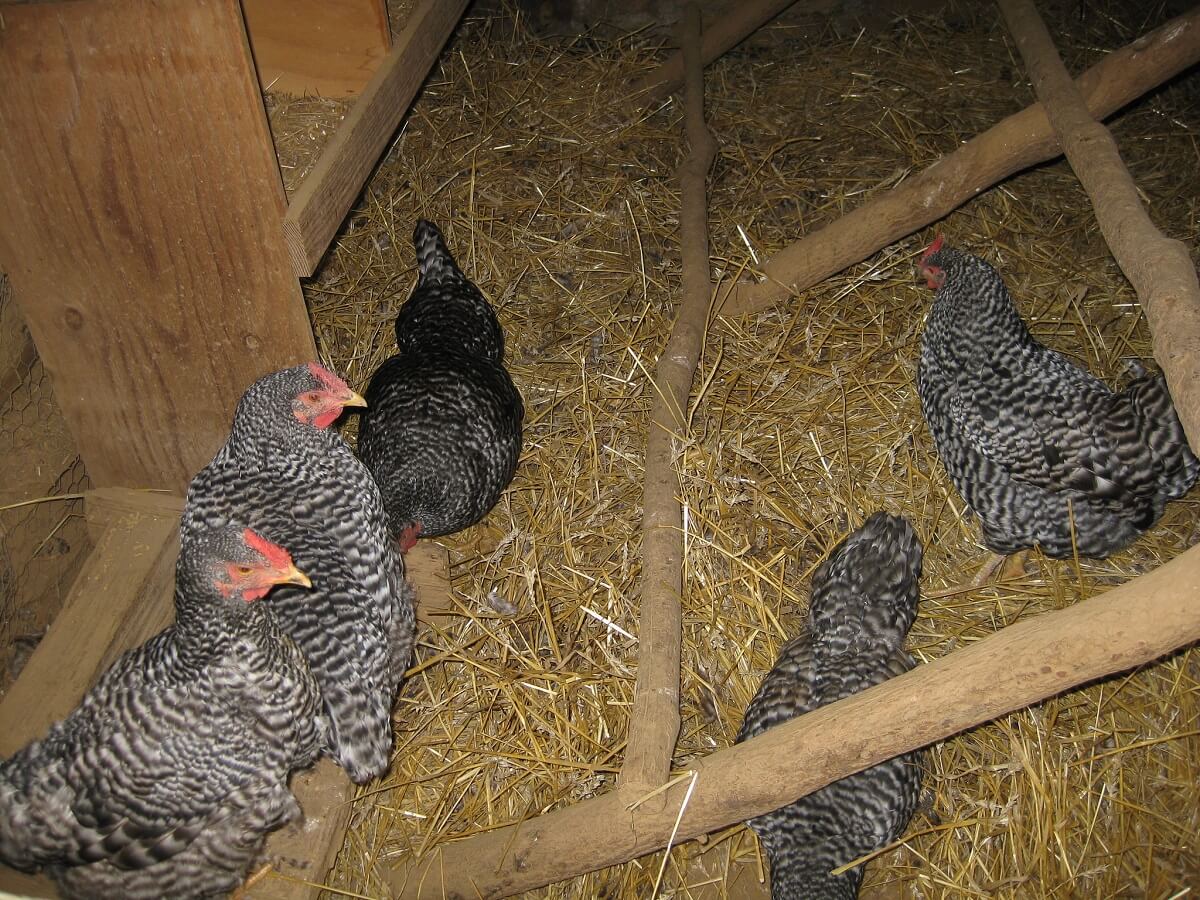
If your chickens are confined to a run, permit at least 10 square feet per bird to make sure they have enough room. Additionally, make sure there’s one nesting box for every three hens. That’s the minimum. The more space your chickens have to move around during the day, the better off they’ll be.
If you found this article because you’re trying to end a discouraging run of egg-indulgence in your flock, I hope it has given you a bit of hope and direction on what to do next. I’ve been there and back again, and I can personally attest that once you get the egg-eaters out of the picture, sanity can return to the coop again. If you, likewise, have solved this issue with your own birds, let us know in the comments below how you were able to restore peace and order among your poultry.





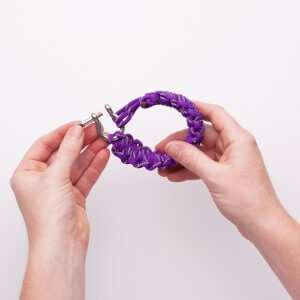















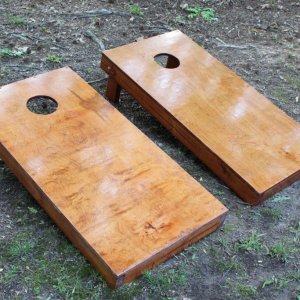





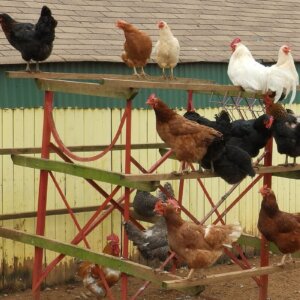



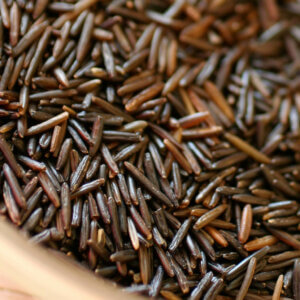





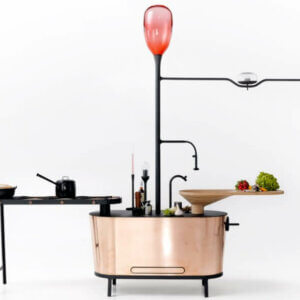




Leave a Reply